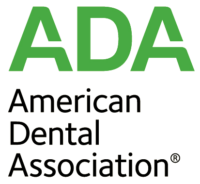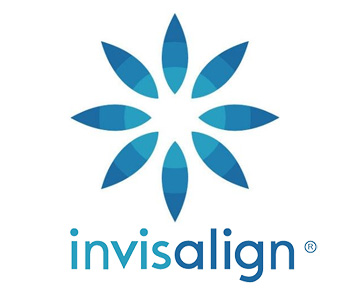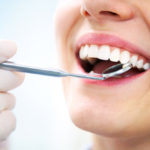Frequently Asked Questions
FAQS
There are a number of questions you may have about our dental care, facial ethetics and plenty of health related topics. In this section are some of the most common questions we're asked about our services, as well as some helpful tips. Have more questions? Call or email us, we're happy to help.
General Dentistry
- What is Gingivitis?Gingivitis is an inflammation of the gums, usually caused by a bacterial infection. If left untreated, it can become a more serious infection known as periodontitis. Gingivitis and periodontitis are major causes of tooth loss in adults, according to the American Dental Association. Brushing twice a day, flossing daily, regular dental checkups and dental cleanings are the best preventions against gum disease.
- How often should I see the dentist for a check-up and cleaning?Adults should see their dentist for a regular cleaning and check-up every six months. People at a greater risk for oral diseases should have dental check-ups more than twice a year.
- How often should I change my toothbrush?Adults should change their toothbrush every 3 months because they become worn out and are not as effective as they once were. Exceptions to this would be if you were using an electric toothbrush, and the manufacturer states otherwise. Some electric rechargeable toothbrushes have very good brush heads that only need to be changed every 6 months. If you have gum disease, you should change your toothbrush every 4 – 6 weeks because bacteria can harbor in the bristles. You should always rinse your toothbrush out with hot water after every use and change it after you have been sick.
- What can I do to make my teeth whiter?Tooth whitening is one of the easiest procedures that can be done to improve the quality of your smile. Today tooth whitening is a safe and long-lasting way to achieve a brighter smile. Dentist-Supervised whitening treatment is the safest and most effective method for whiter teeth. Our office offers several methods of whitening teeth. Call to set up a consultation to discuss which would be right for you.
- What is the sports mouth guard?Sports mouth guards protect teeth during sports or other physical activity. The mouth guard protects not only the teeth from forceful blows, but the soft tissues such as the tongue, lip, or cheek lining, which could be bitten during certain maneuvers
- What is a snore guard?For people who snore or have sleep apnea, a mouth guard or night guard can be useful to help alleviate their symptoms. The snore guards works by repositioning the tongue and soft tissues in the mouth to keep the airway open and prevent snoring.
- What helps unbearable tooth pain?Using medications such as ibuprofen (Advil, Motrin), acetaminophen (Tylenol), and aspirin can relieve minor pain from a toothache. Using numbing pastes or gels — often with benzocaine — can help to dull the pain long enough for you to fall asleep
- Why is Toothache worse at night?The main reason why toothaches are more painful at night is our sleeping position. Laying down causes more blood rush to our heads, putting extra pressure on sensitive areas, such as our mouths. We don't feel that throbbing sensation as much during the day because we're mostly standing or sitting.
Facial Esthetics
- What are the benefits of Microneedling?Microneedling is used to treat and improve conditions like acne scarring, fine lines and wrinkles, loose skin, skin texture, pore size, brown spots, stretch marks, and pigment issues. It's also called skin needling, collagen induction therapy (CIT), and percutaneous collagen induction (PCI)
- How long does it take to heal from Microneedling?Typically you will experience redness and mild swelling for 24-48 hours after the treatment, followed by some slight peeling. You may wear makeup again after 24 hours. You can usually return to work and social activities after a few days.
- How often should I do micro-needling?Micro-needling can be safely repeated every 4-6 weeks until you achieve the desired results. For collagen induction we recommend to start with 3 treatments, but with a minimum separation time of 4 to 6 weeks between treatments. For scar reduction an average of 3 to 6 treatments are recommended.
- What is Newtox vs Botox?Jeuveau is an FDA-approved neurotoxin and a new alternative to Botox. Accordingly, it is called “Newtox” as a catchy title. Like Botox, Dysport, and Xeomin, Jeuveau can target horizontal forehead lines, vertical frown lines, and crow's feet and help women and men achieve smoother and younger-looking skin.
- What are the differences between Botox and Dermal fillers?In summary, the differences between Botox and fillers are:
- Botox freezes muscles to stop creases and wrinkles caused by facial expressions. These are typically found in the upper face, such as the forehead and around the eyes.
- Dermal fillers use hyaluronic acid and similar substances to “fill in” or plump areas that have lost volume and smoothness. This includes wrinkles around the mouth, thin lips, and cheeks that have lost fullness. They may also be used on forehead wrinkles, scars, and other areas that need extra volume for a smoother look.
Cosmetic Dentistry
- What can I do about missing teeth?Whether you lost your teeth in an accident or you had them pulled, replacement teeth not only have the potential to enhance your appearance, but they may also improve your chewing and speaking. Missing teeth can be replaced using fixed bridges, dentures or dental implants. Following a consultation, we can discuss which procedures we would recommend for you.
- What if I have chipped or cracked teeth?If your tooth is broken, chipped, or fractured, see your dentist as soon as possible. Otherwise, your tooth could be damaged further or become infected, possibly causing you to end up losing the tooth. Chipped or cracked teeth can be easily repaired using several methods. A crown or “cap”, inlays or onlays can restore a tooth to its original shape, strengthen a tooth, and improve your overall appearance. Veneers are thin custom-made moldings that cover the fronts of your teeth. All of these restorations use natural tooth-colored high-tech materials that are color-matched to the precise shades of your teeth.
- What about crowded or crooked teeth?Teeth that are crowded or crooked can often be corrected with either cosmetic restoration procedures or orthodontic tooth movement. We will gladly discuss which option we would recommend for you.
- How long do Inlays and Onlays last?One of the main benefits of inlays and onlays is how durable and long-lasting they can be. You can expect an inlay to last anywhere between 5 and 30 years.
- How do Onlays compare to the Dental Crowns?With an onlay less tooth structure needs to be removed for treatment. Onlays are more cost-effective than dental crowns, but are a more indirect restoration.
Schedule an Appointment
Contact Us
- 315 MAIN ST, SUITE 101, READING, MA 01867
- 781-944-4450
- info@primafamilydental.com
Office Hours
- Monday: 10:00 - 19:00
- Tuesday: 09:00 - 18:00
- Wednesday: 09:00 - 18:00
- Thursday: 09:00 - 18:00
- Friday: 09:00 - 15:00
- Saturday, Sunday: Closed
2023 © Prima Family Dental All Rights Reserved.









